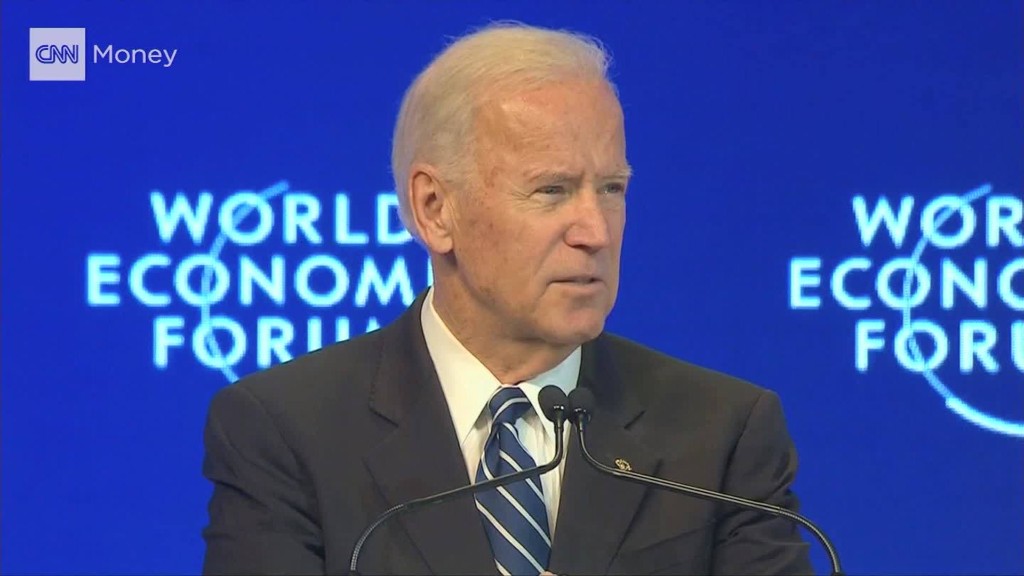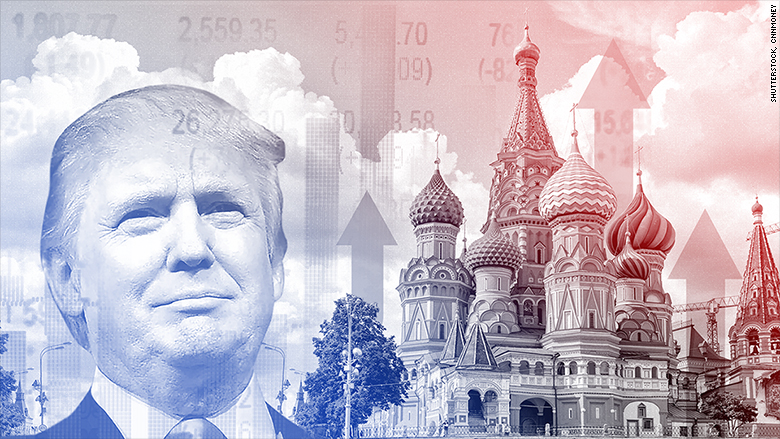
Russia is not banking on Donald Trump scrapping economic sanctions any time soon.
First deputy prime minister Igor Shuvalov said the Russian government's plans for 2017 are based on the expectations that sanctions are here to stay.
"Perhaps the market is expecting an improvement in our relationship with the U.S., [but] in our work, we operate on the basis of continued sanctions," Shuvalov said at the World Economic Forum in Davos.
Russian markets rallied after Trump's election victory in November because of expectations he would seek a warmer relationship with Moscow. Russia's RTS stock market index soared 52% in dollar terms in 2016.
Trump has indicated that trade restrictions imposed on Russia could be eased in return for a deal on nuclear weapons. Russia's foreign minister, Sergey Lavrov, has said Moscow would welcome a dialogue.
Shuvalov and other officials say the Russian economy can cope even if sanctions remain in place.
"We have adjusted not only to low oil prices but also sanctions," said Maxim Oreshkin, Russia's minister of economic development. "So what we are doing at the moment is concentrating on our own programs... we are not thinking much about the sanctions," he added.

Biden: Russia will hack elections in Europe
Russian businessmen in Davos struck a more optimistic note, saying they expect the relationship between the U.S. and their country to improve under Trump.
"We are quite optimistic about the Trump administration, we believe they will treat us with respect," said Kirill Dmitriev, CEO of Russia's sovereign wealth fund.
Andrey Kostin, president and chairman of VTB Bank, said he expects that the first sanctions to be lifted could be those against Russia's leading financial institutions.
Related: Lavrov says Russia keen for dialogue with Trump
The U.S. and European Union both imposed sanctions on Russia after it annexed Crimea in 2014 and backed separatists rebels in eastern Ukraine. They cut Russia off from international financing, banned exports of weapons, and prevented some Russian officials from traveling to the EU and the U.S.
The sanctions hurt Russia's economy, which was already suffering because of low oil prices. Millions of ordinary Russians slumped into poverty as the country struggled to adjust.
The sanctions were extended for a further six months in December 2016.
Slovakia's foreign minister, Miroslav Lajcak, said Thursday the EU sanctions are unlikely to be lifted unless Russia fully implements a ceasefire agreement signed in Minsk in 2015.


